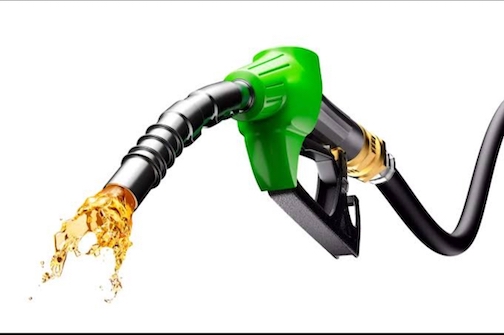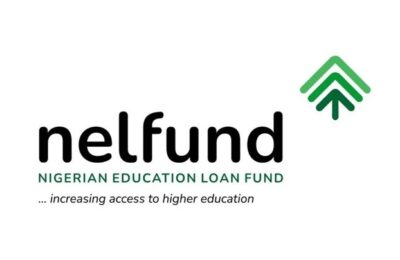The latest fuel subsidy policy which was announced during the swearing- in of president Ahmed Bola Tinubu on May 29 had led to an immediate increase in fuel prices,causing a cascading effect on the cost of living.
The new policy resulted to high cost of fuel and had adversely affect businesses,making it more expensive for businesses and consumers to operate within the sector.
The informal sector is made up of small businesses and traders who are not officially registered with the government. Informal sector includes street traders, subsistence farmers, small scale manufacturers, service providers etc.
The informal sector include a large number of areas of informality like environmental, spatial economic and social, covering business activities, employment, settlement,neighborhood and market.
The informal sector in Nigeria has contributed significantly to the nations economic growth,as it provides employment for a large number of people and contributes greatly to the Gross Domestic Product (GDP) of the nation.
The sector offers significant job creation, income generation potential and the capacity to meet the needs of poor consumers through the provision of cheaper and more accessible good and services.
Hence, the Nigeria economy, with the contribution of the informal sector depends on the state affairs of the informal sector. In fact, in 2017, Nigeria record its first full year growth after experiencing recession in 25 years.
After recovering from the recession, it brought about an increase in business confidence.
However, the GDP growth was less than the National population growth. This called for a concern. The concern persisted even as the IMF projected 2.1 percent growth for 2018,which falls below the population growth forecast of 2.6 percent. With the population growth, high underemployment and unemployment rates,this resulted in increase in the number of job seekers in 2018.
However, with the informal sector in place, quite number of people unemployed looked up to the informal sector for employment, leading to economic survival.
According to the International Monetary Fund (IMF), the Nigerian informal sector accounted for ~65 of Nigerian 2017 gross domestic product.
In a column by Timi Olubiyi in The Guardian, he states that in Lagos state alone, the informal economy employ about 5.5 million people – about three-quarters of the State’s 7.5 million labor force recently, and in the country as a whole with nearly 200 million people, over 80 percent of the population work in the informal sector.
As the informal sector plays this substantial role in employment and livelihood in Nigeria, the government policy of fuel subsidy removal has constrained the sector operations.
With the fuel subsidy removal policy in action, the informal sector has found it difficult to stay afloat,as the cost of goods and services has increased tremendously, causing a sharp increase in inflation, which has made it even more difficult for people to afford basic amenities. As a result, many people in the informal sector has seen their living standards declined.
In addition, the policy has led to a decrease in the number of informal businesses operating in the country. As they are unable to sustain their operations in the face of higher costs and lower profits.
A businessman, Lekan Akanbi ,who is into spare parts business laments about the hike in fuel price. He narrates that he normally transport his goods from Onitsha to Kogi state. However, he states that since the recent subsidy removal ,there have been increase in the cost of transportation. Now, he pay three times the amount he used to waybill his goods, and this has affect the price of his goods and thereby resulting in low demand of the goods by the customers.
Also, the fuel subsidy removal led to an increase in unemployment,as many people have lost their jobs as a result of business closures. This decision has a great effect on the Nigerian economy, because the economy of out country is largely driven by the informal sector.
A trader who sells wears and fabrics products cried that since the policy have been implemented and a here has been increased prices in everything, there have been low demand and purchase of her goods, thereby affecting the normal income she makes on a daily basis.
She said the business have been slow in sales and she further complained about having payments and several bills in the likes of electricity bill, shop rent and other bills even though she is not earning as before.
Aside from all these problems the informal sector is facing, Muda Yusuf, the director of centre for the promotion of private Enterprise also added that “most informal sectors are already paying all manners of levies to local government and several non- state actors, which is adding to the pressure of the informal sector.
In response to all these challenges of the informal sector, President Ahmed Bola Tinubu said his decision to remove the petro subsidy have imposed extra burden on the masses but the advantage is that it would free up money for education, regular power supply, transport infrastructure and healthcare and other public utilities that will improve the quality of lives.
President Ahmed Bola Tinubu further said in a bational broadcast on 31st of July this year, that his administration recognises the importance of micro, small and medium-sized enterprises and the informal sector as drivers of growth. And he will energise the informal sector with N125 billion.
Also, three weeks ago, the president assured the Nigerians that there will be no increment in the price of fuel. He said his administration is already taking actions that would ensure there is no increase of fuel price in the country without having to reverse the nation’s decision to exit the subsidy regime.
– Jerry Glory
Prince Abubakar Audu University, Anyigba.




